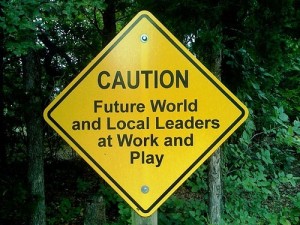 |
|
| Photo by Wesley Fryer |
I’m in Colorado Springs, where yesterday I was lucky enough to hear a keynote presentation by futurist Thomas Frey. Frey is Senior Futurist at the DaVinci Institute, and Google’s top-rated futurist speaker. His job as a futurist, Frey says, is to “help turn people around and give them some idea of what the future holds.”
Frey’s speech was targeted at business types, but much of his message applies to writers. One of his charts illustrated how digital media is rapidly displacing print. In the future, Frey said, society is going to become less text-based; keyboards will start to disappear (that may be already happening–think of how the touch screen is replacing key pads on Smart Phones). People are also going to have increasingly limited attention spans. (I worry about that one).
Rather than being controlled or frightened by the future, we should embrace and help shape it, according to Frey. He discussed various ways to create and implement a vision of the future. Those who successfully manage that change process, he said, will prosper and control the future. He called those people the “Futuratis.”
I like to think of the TKZ is a colony of potential Futuratis. As Jim and Clare discussed in their posts this week, we’re already grappling with the e-publishing revolution, trying to find ways to navigate through new, uncharted waters. My take-away from Frey’s speech was this: instead of simply responding to trends, we need to build and implement a vision of the future. By doing so, we can impact the very shape of the future itself.
I stayed up late last night reading Frey’s book, Communicating with the Future, and started thinking about my own vision of the future. I decided I’ve spent too much time reacting to the present, rather than mapping out my own vision of what the future will hold.
Have you created a vision of your future as a writer? Do you think you have what it takes to become a Futurati?
